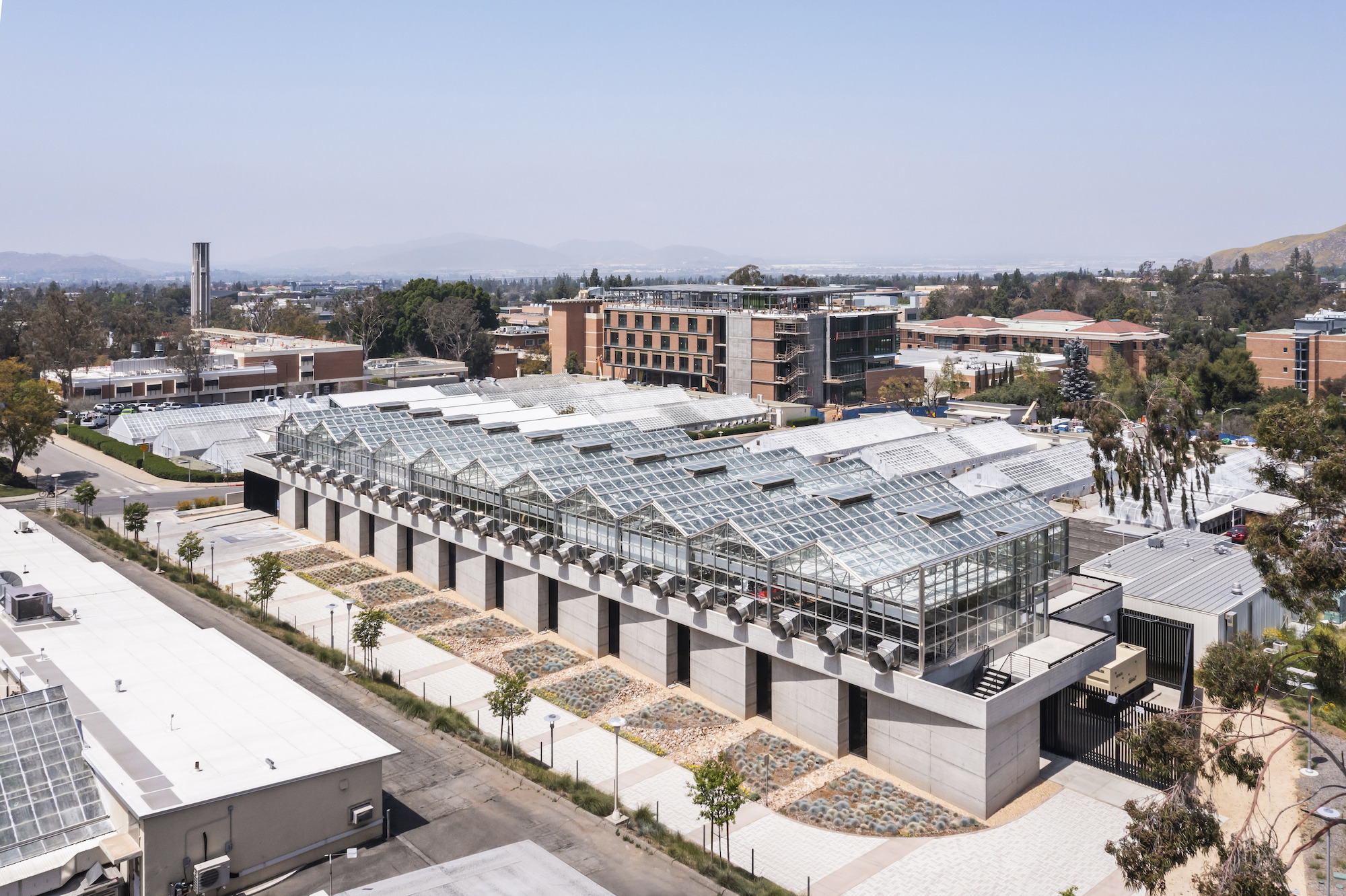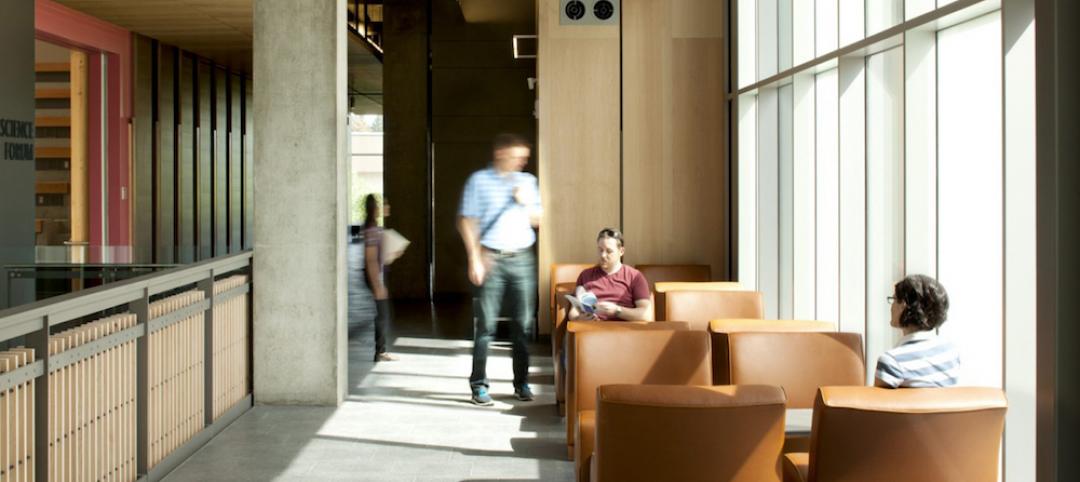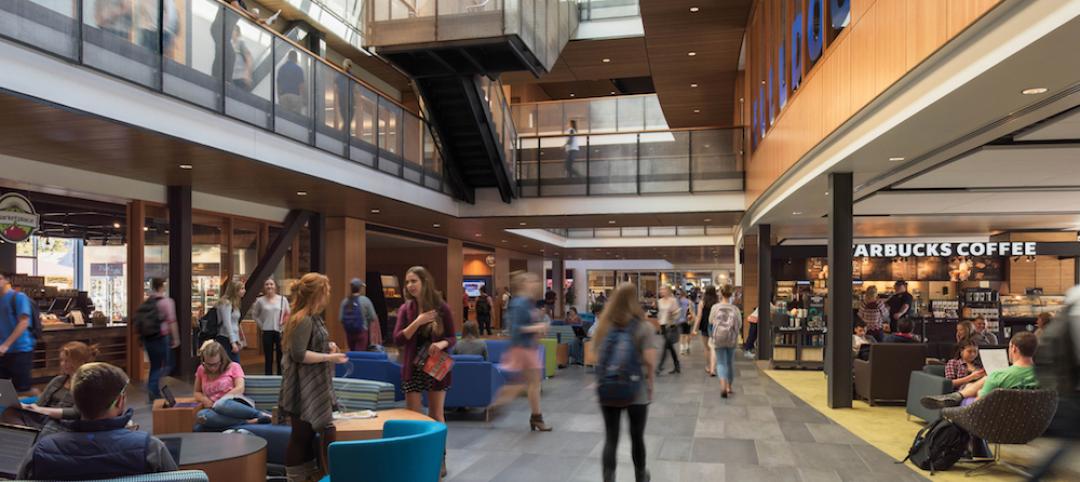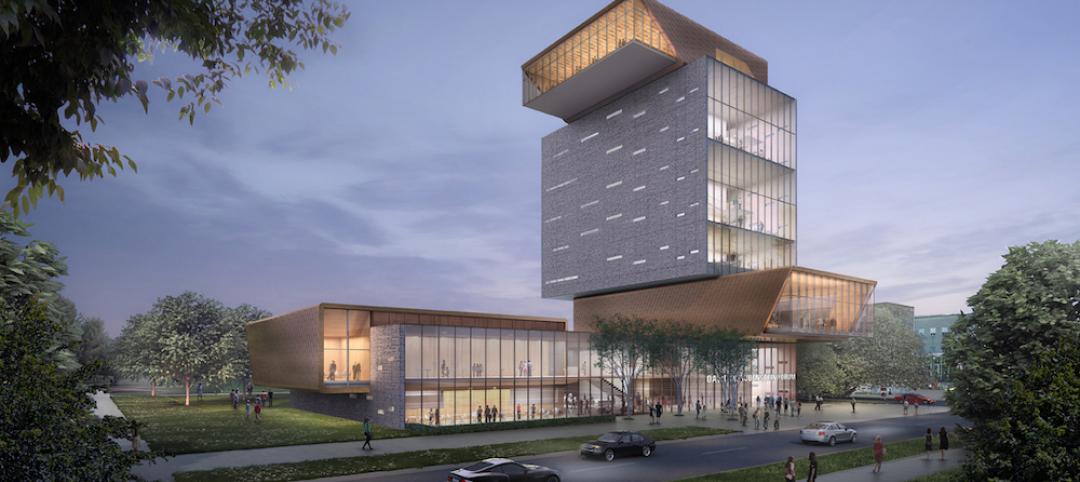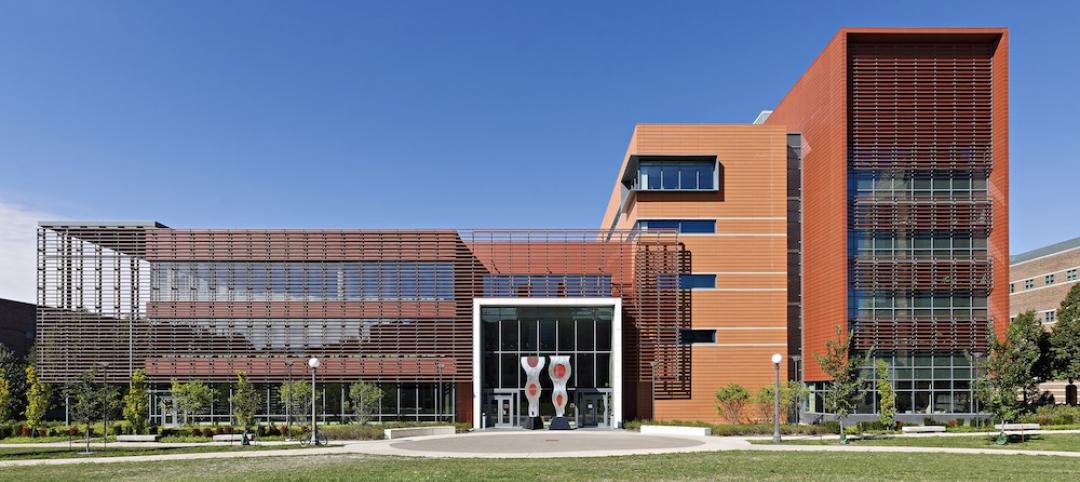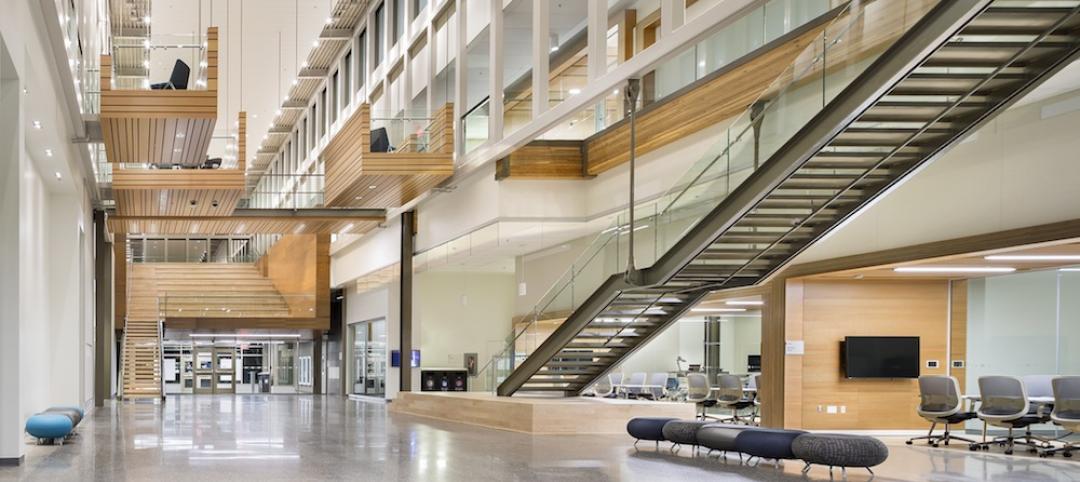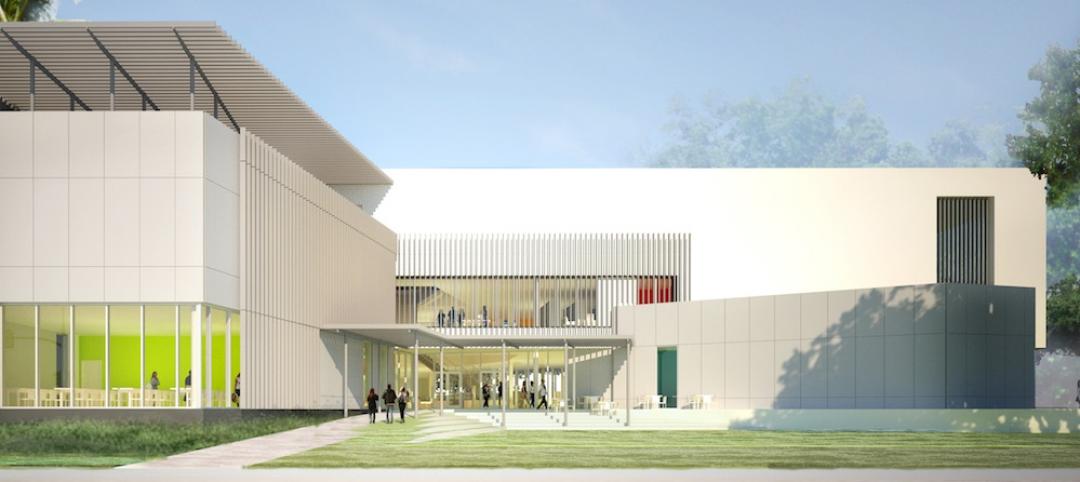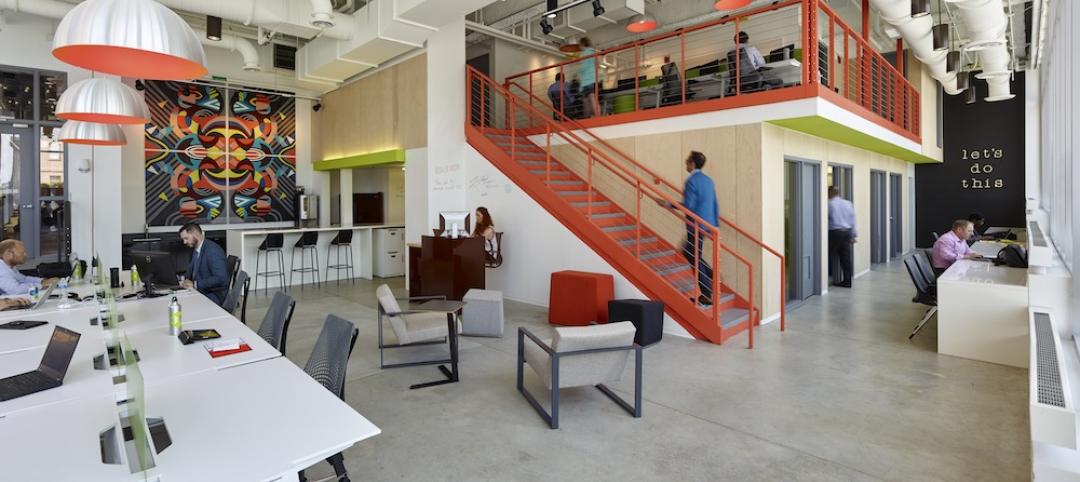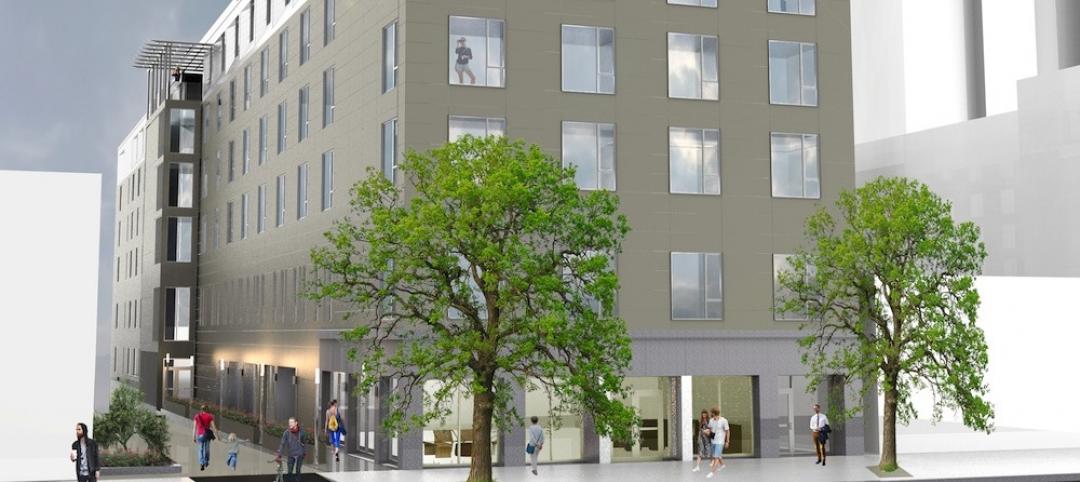The University of California, Riverside’s new plant research facility, a state-of-the-art greenhouse with best-in-class research and climate control technologies, recently held its grand opening. Construction of the two-story, 30,000 sf facility was completed in 2021. It then went through two years of preparation and testing.
The facility will enable students and faculty from UCR’s College of Natural and Agricultural Sciences (CNAS) to conduct innovative studies previously unachievable at the university. Teams are currently investigating how well bees can pollinate in different climates, testing how to grow rice to withstand drought and flooding conditions, and examining how plants can serve as soil decontaminants.
The gables of the surrounding greenhouses inspired the design of the building, which is expressed in the upper-level glass roofs. The serrated concrete walls at the ground level, and the array of fans running across the structure’s south elevation complement the rhythmic quality of the upper-level greenhouses. The minimalist use of concrete, steel, and glass allows the building to display its overall function and historical connectedness. The upper level supports a compact cluster of 16 greenhouse modules, each its own independent laboratory.
The serrated concrete wall that envelops the lower-level acts as a thermal mass that stabilizes swings in internal temperature, reducing the need for mechanical air conditioning and capitalizing on the Southern California climate. Each upper-level greenhouse is encased in double-pane polarized glass, revealing the research activities taking place within.
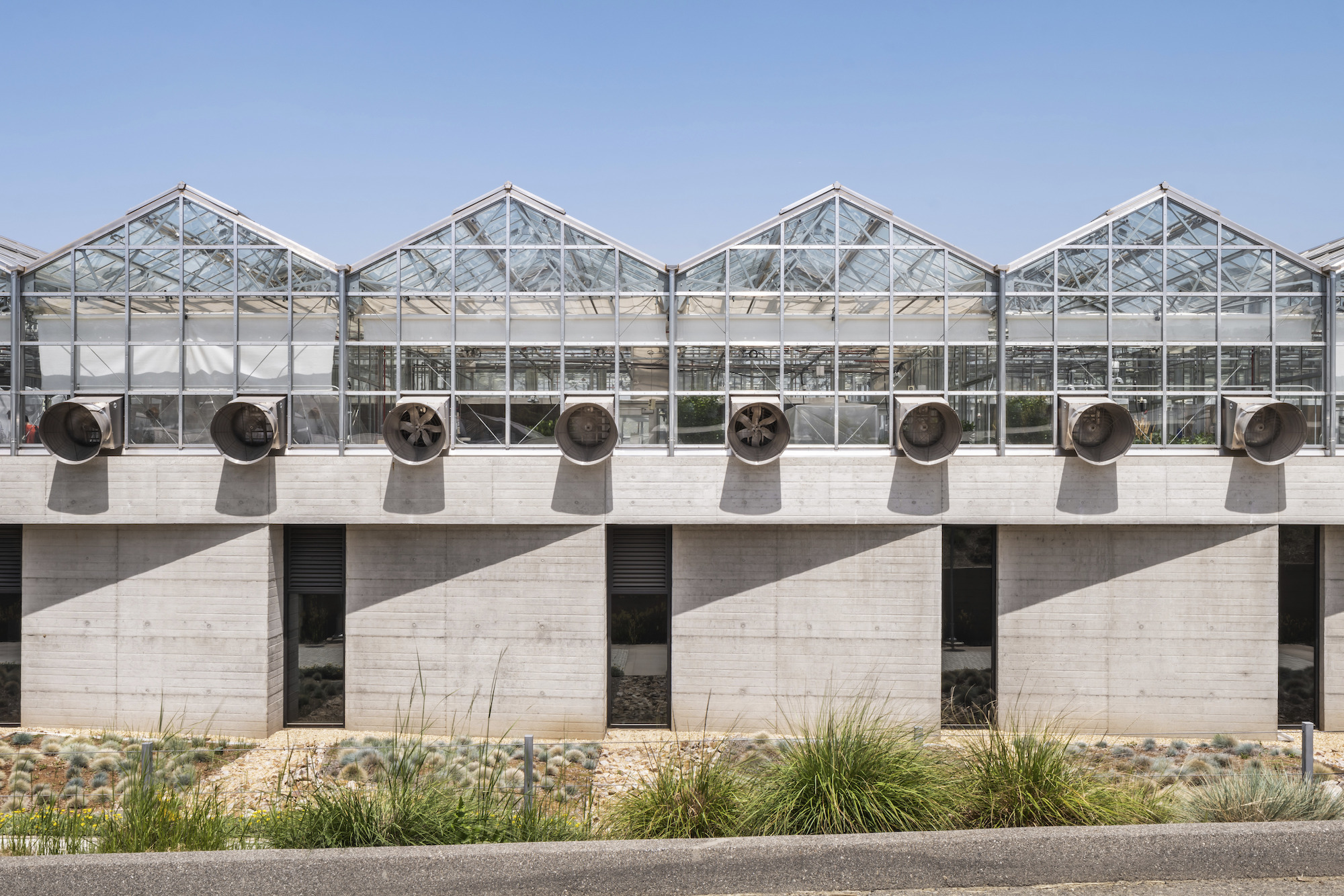
Humidity, temperature, lighting, and other conditions can be independently calibrated in each module to mimic a diverse range of conditions. Climate control is assisted through vertical and horizontal automated shades that enable researchers to closely tune the natural light. Air-conditioning stabilizes select areas, but an evaporative cooling system covers the whole building, allowing it to maintain temperatures lower than other research greenhouses on the campus.
“We are anticipating placing priority on projects that need more specialized environment, things that need humidity and more accurate temperature control,” says Peggy Mauk, director of agricultural operations and a professor of subtropical horticulture with CNAS. According to Mauk, the facility will work well for research involving insects that need colder temperatures, plants that grow at high altitudes, or pathogens requiring tightly controlled environments. “The building is the first new plant research facility built on campus in close to 40 years,” says CNAS
Dean Kathryn Uhrich, “and is considered instrumental in maintaining UCR's continued leadership in agricultural research for the coming decades.”
On the project team:
Owner and/or developer: University of California, Riverside
Design architect: Perkins&Will Los Angeles
Architect of record: Perkins&Will Los Angeles
MEP engineer: tk1sc
Structural engineer: Coffman Engineers
General contractor/construction manager: DPR Construction
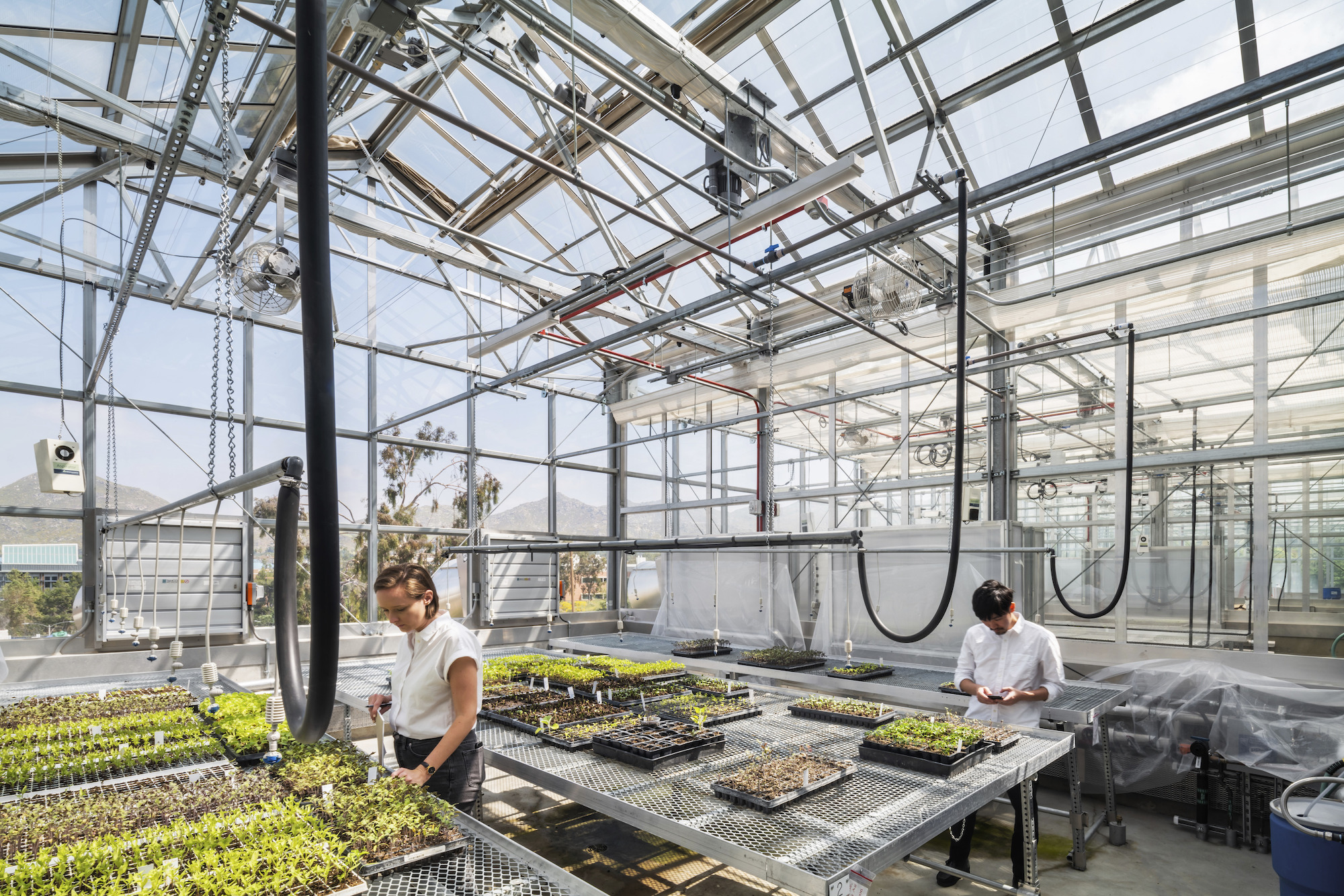
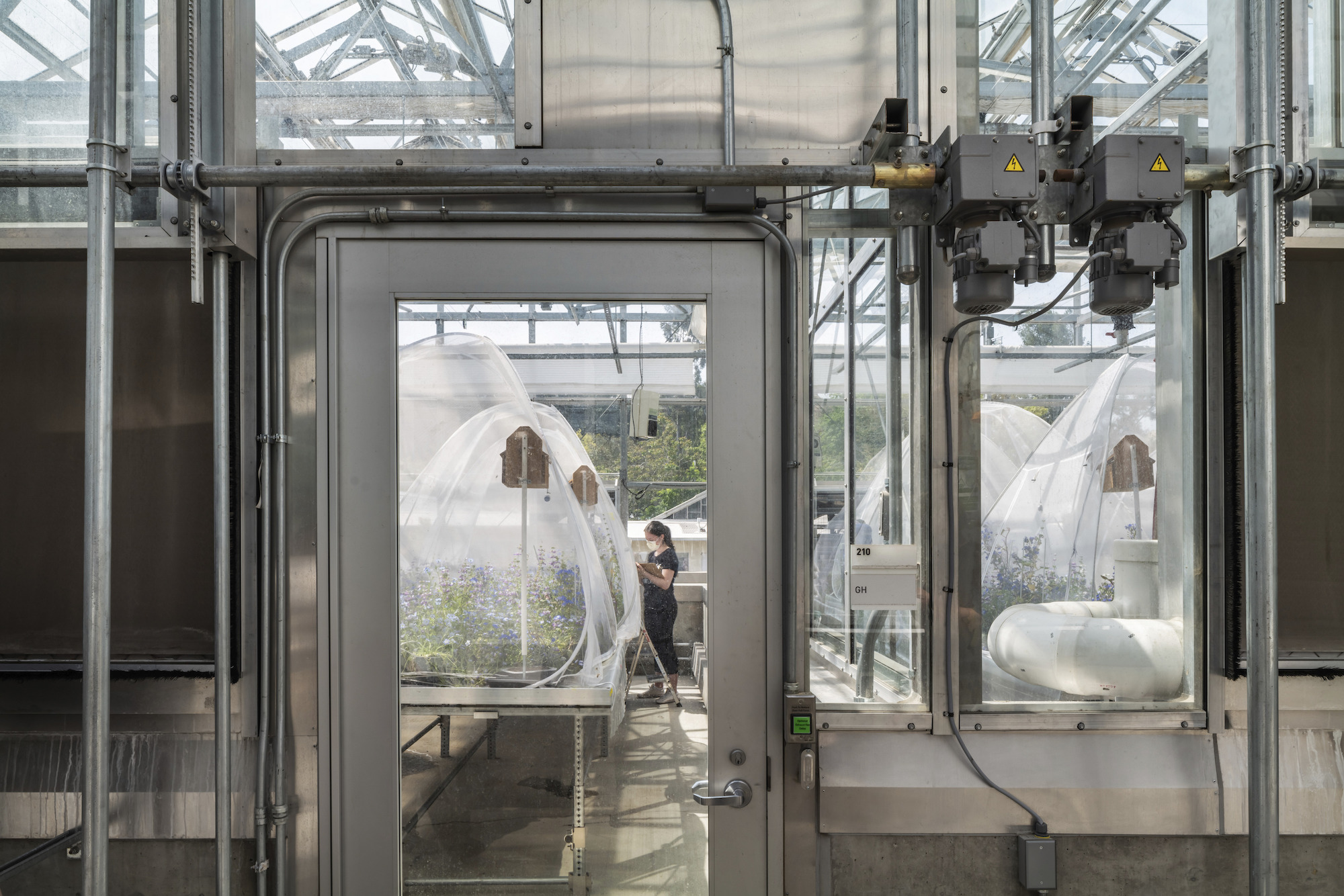
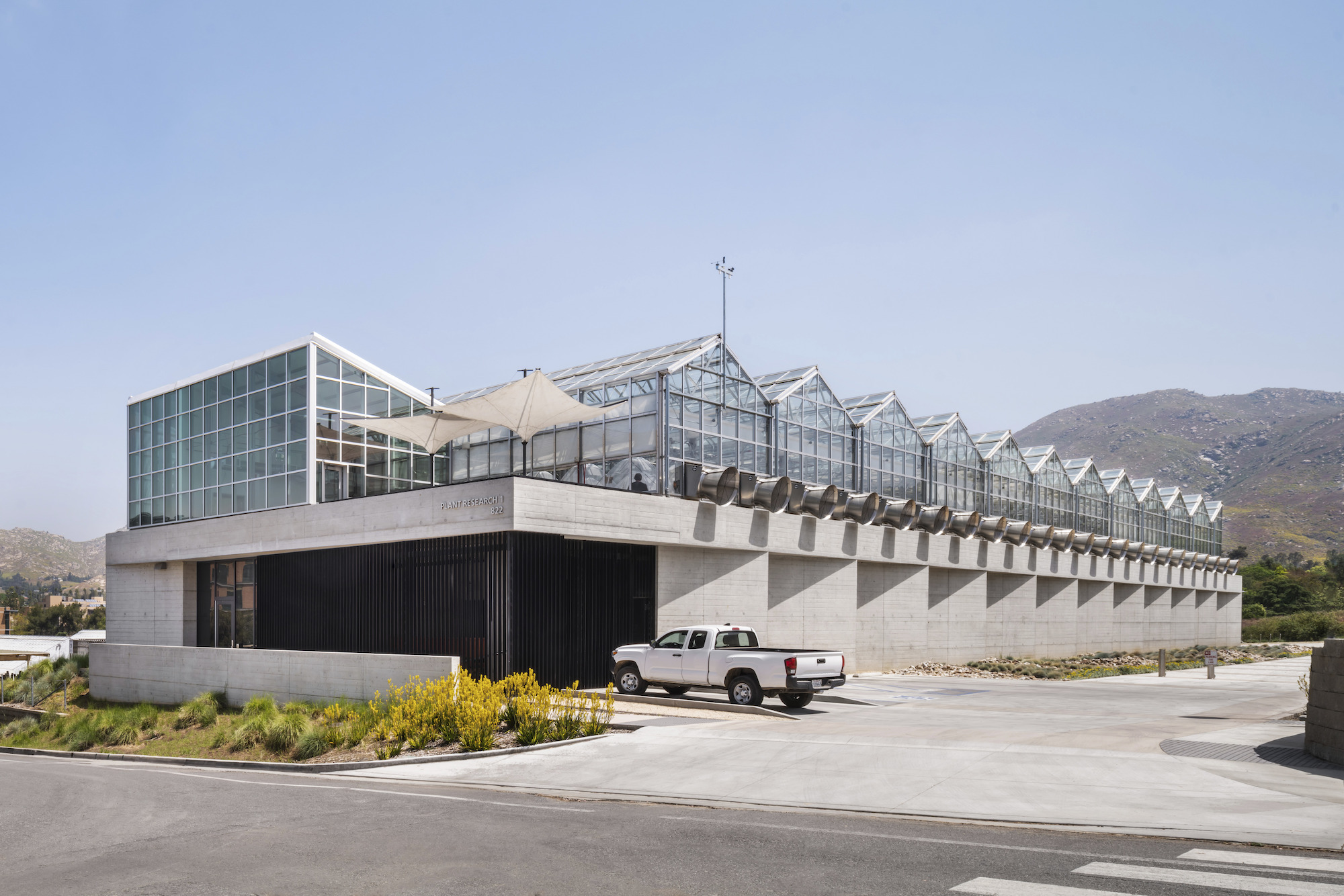
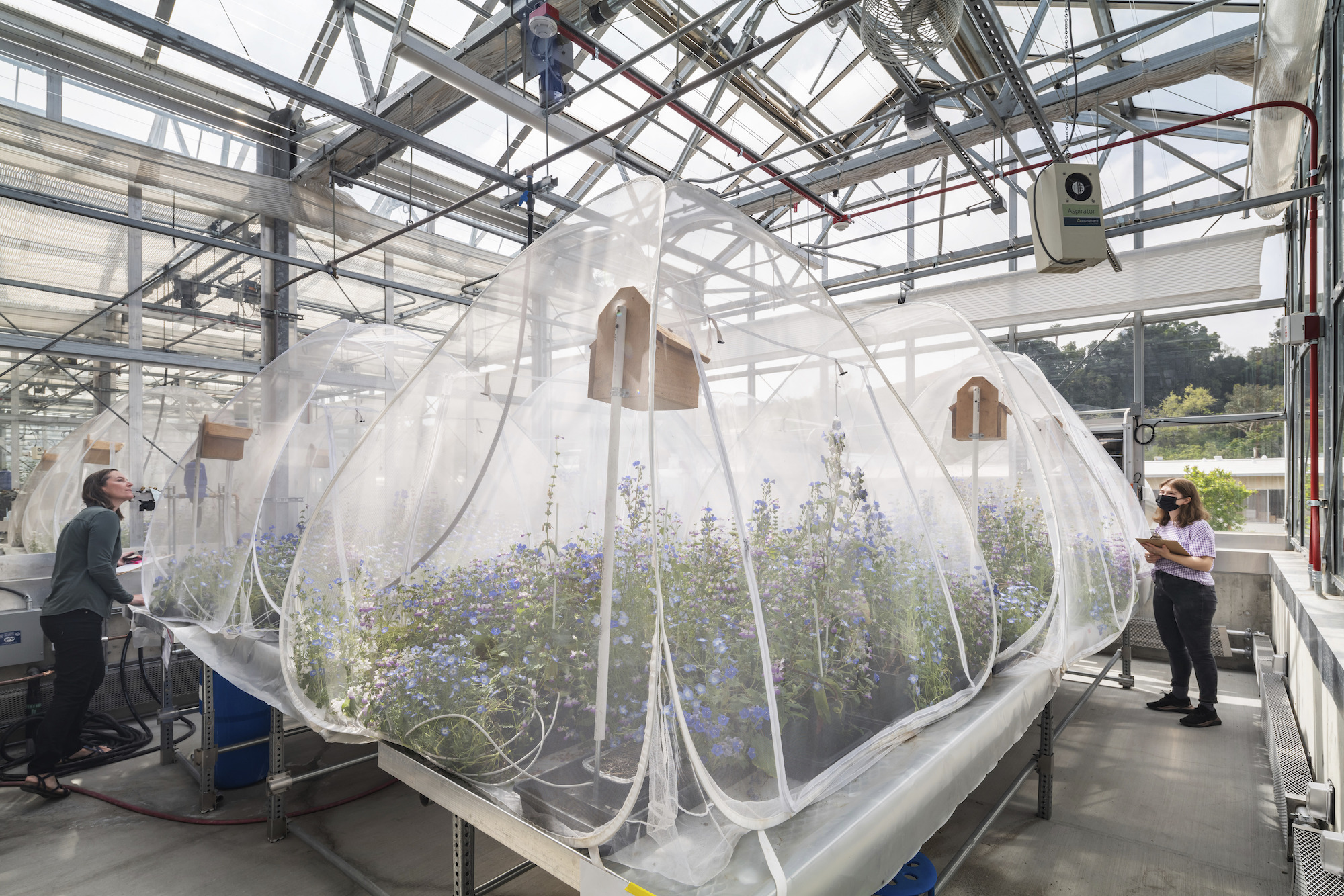
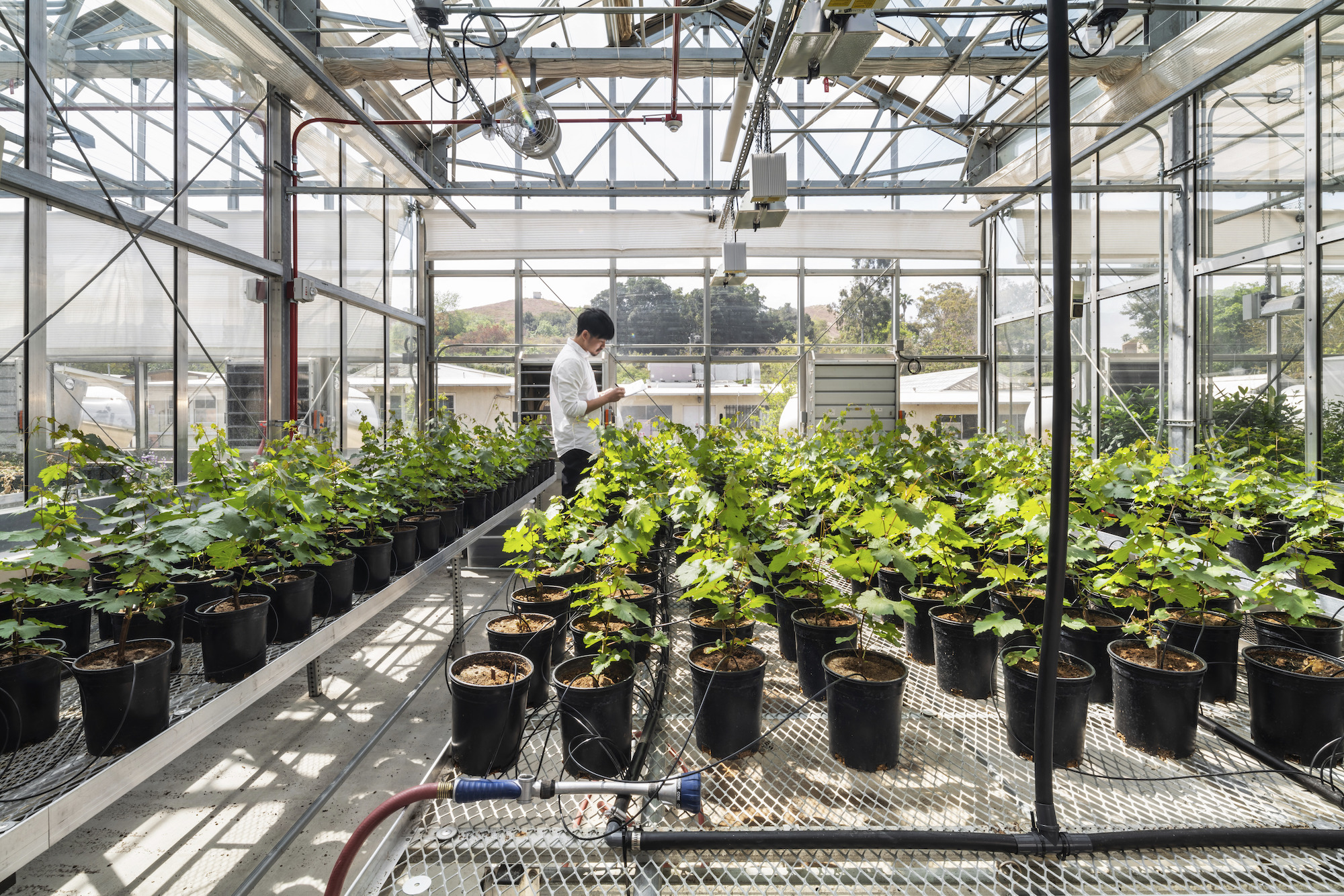
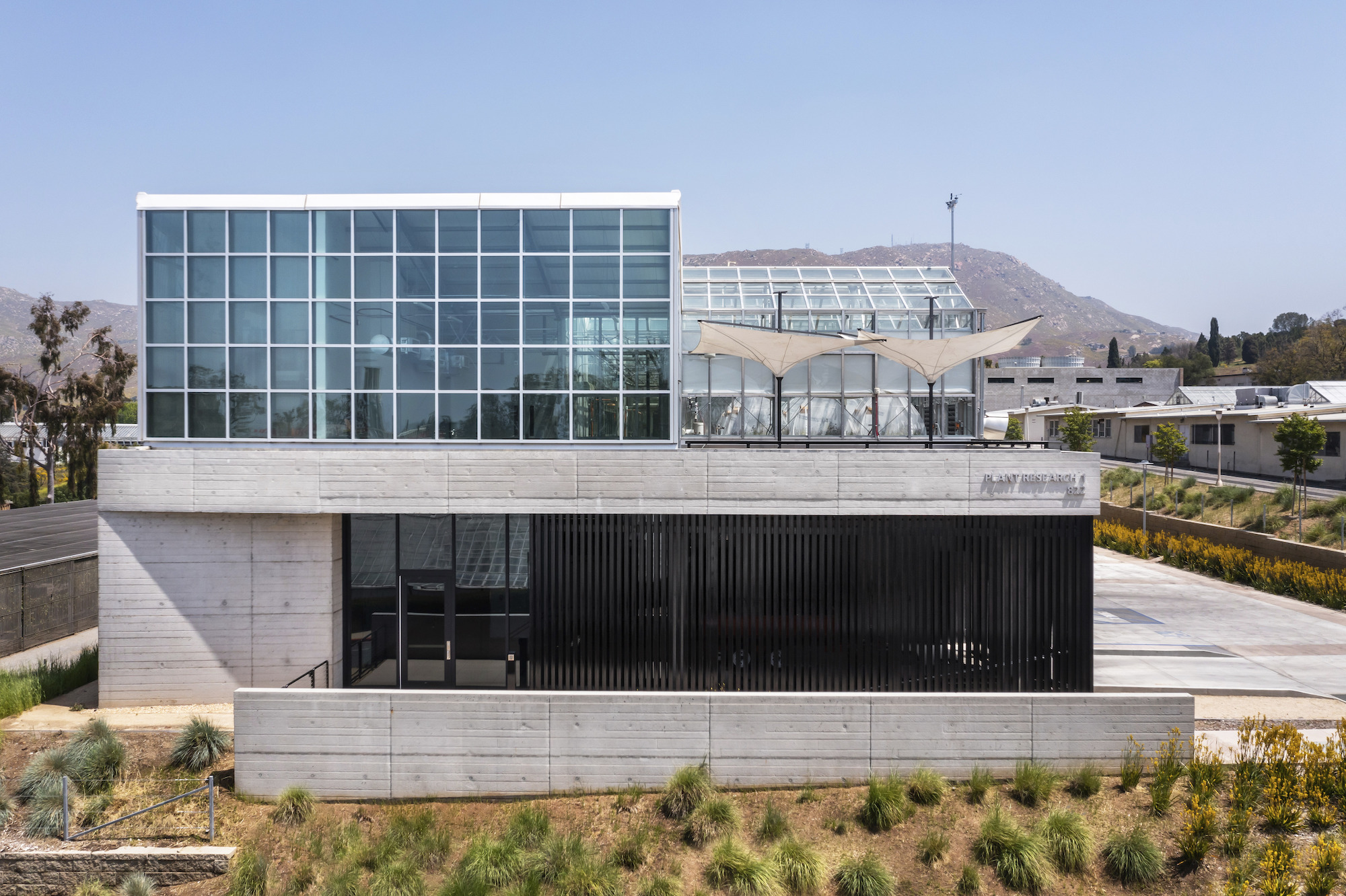
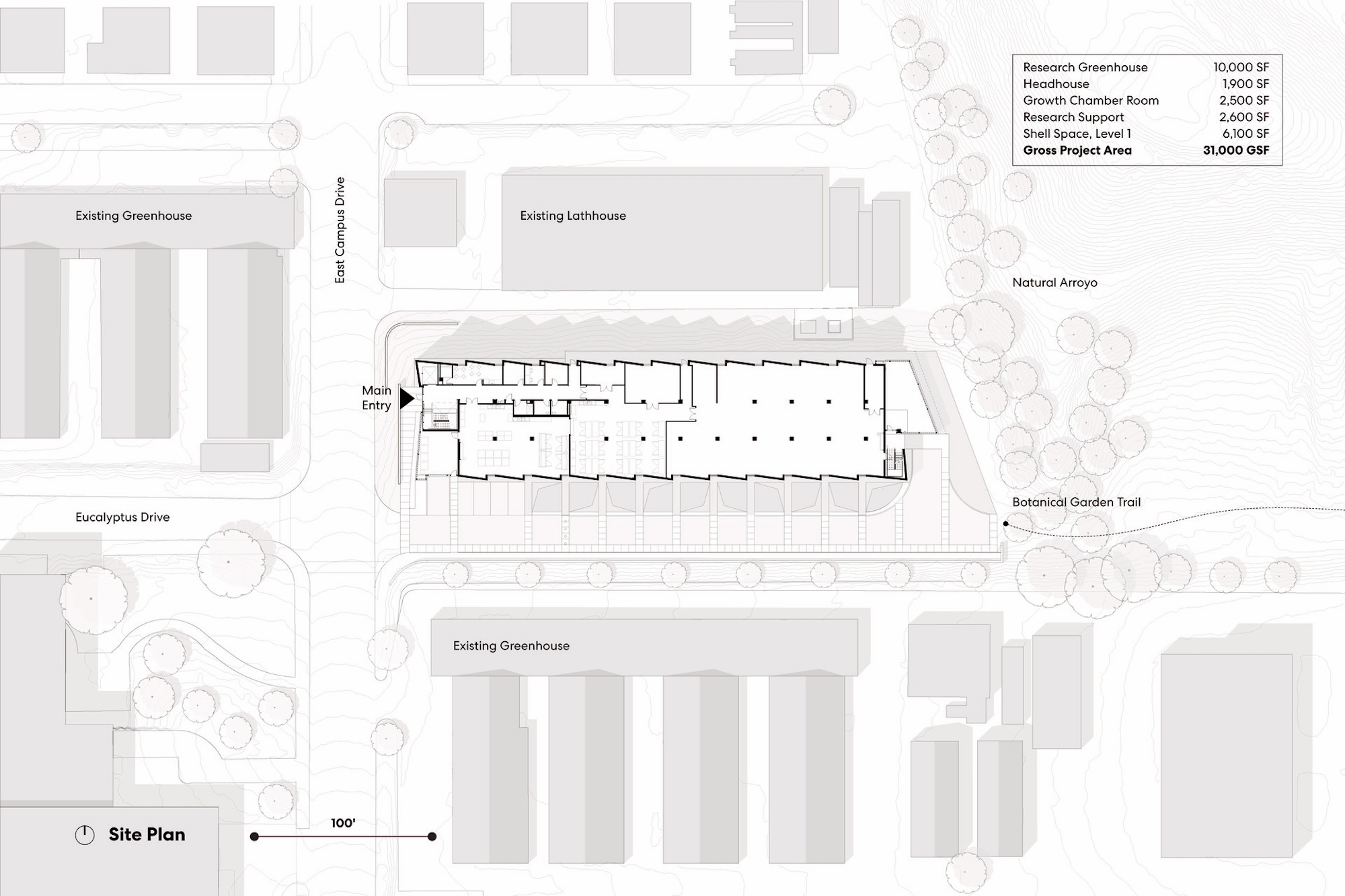
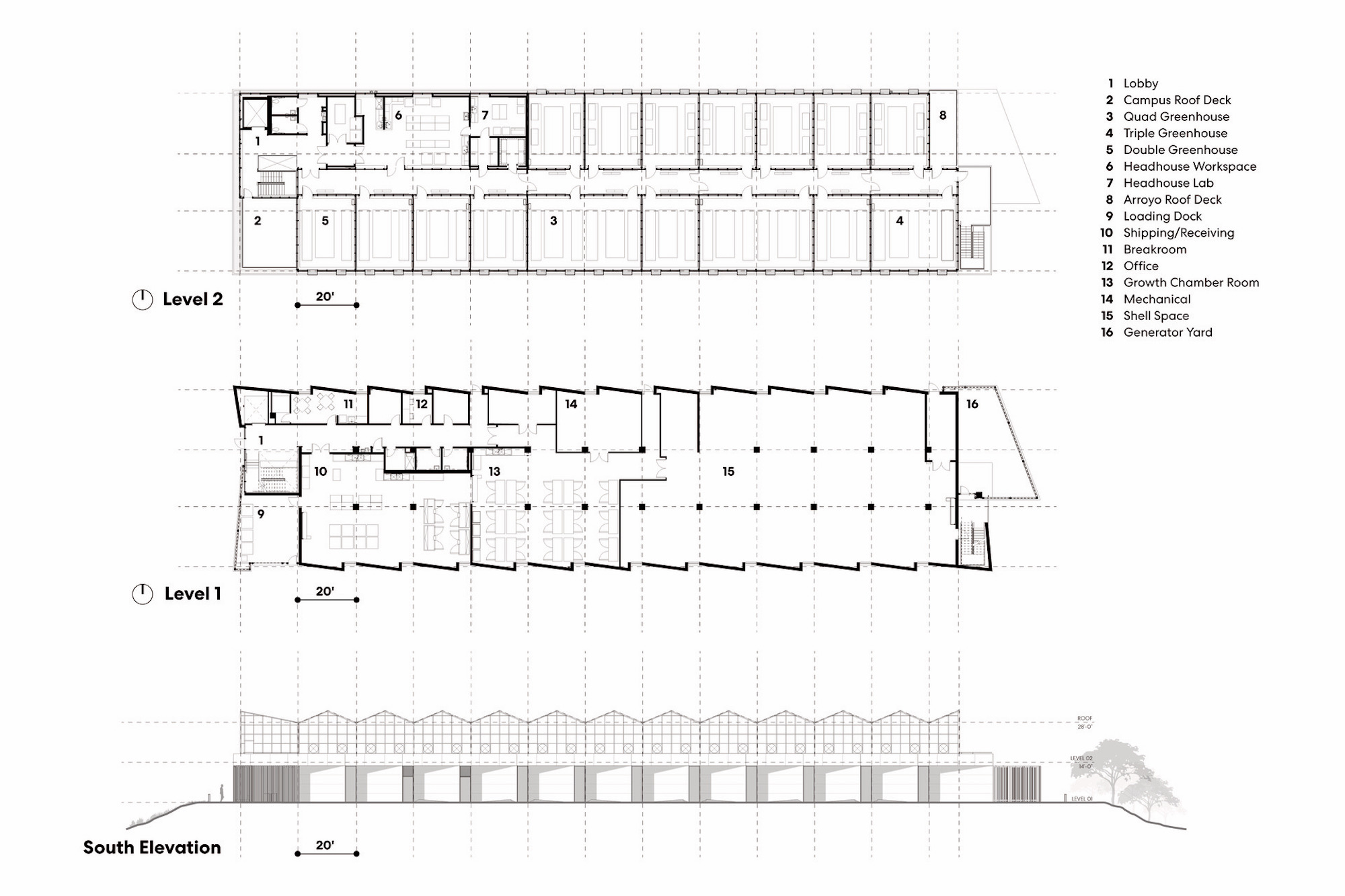
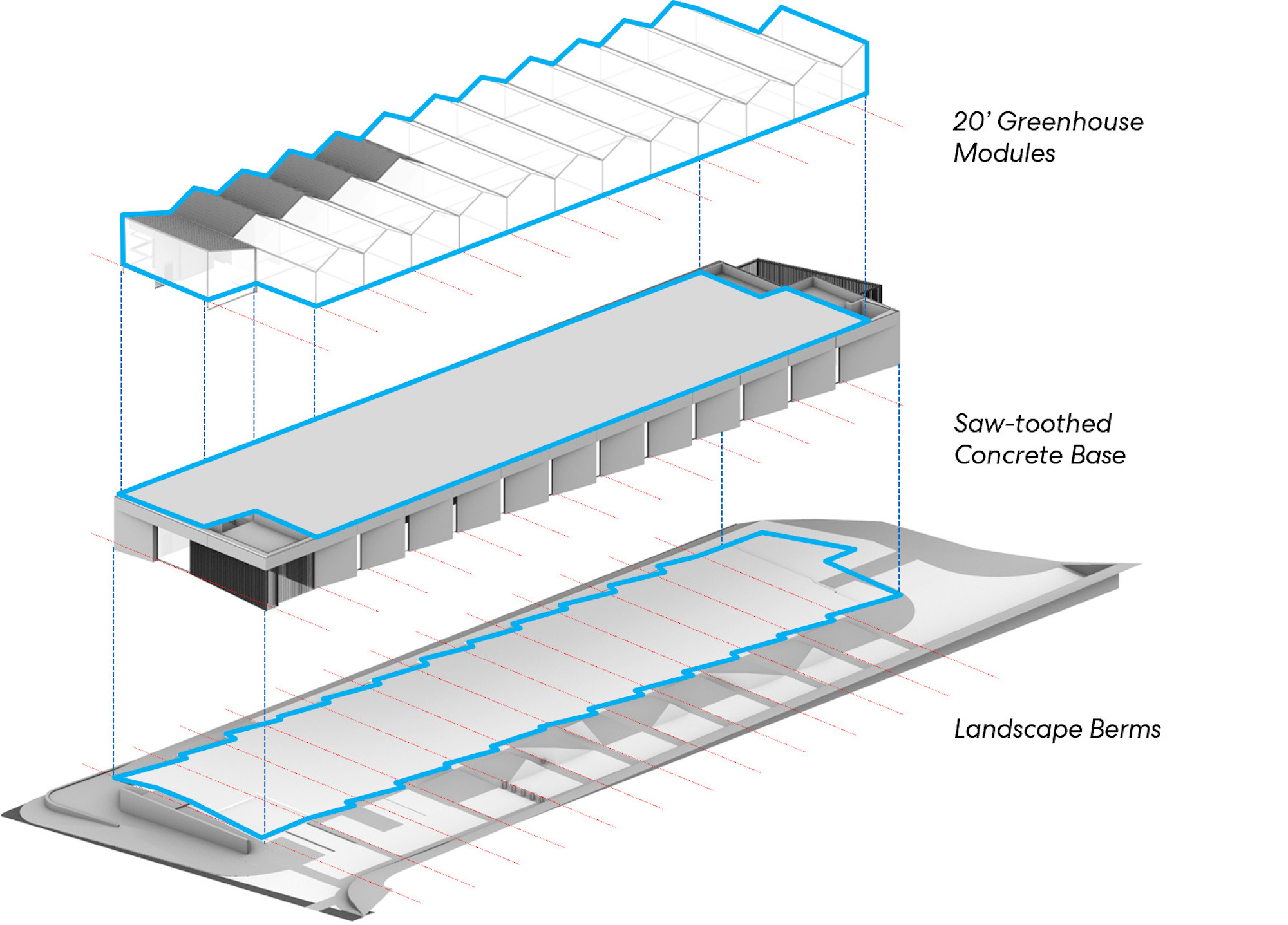
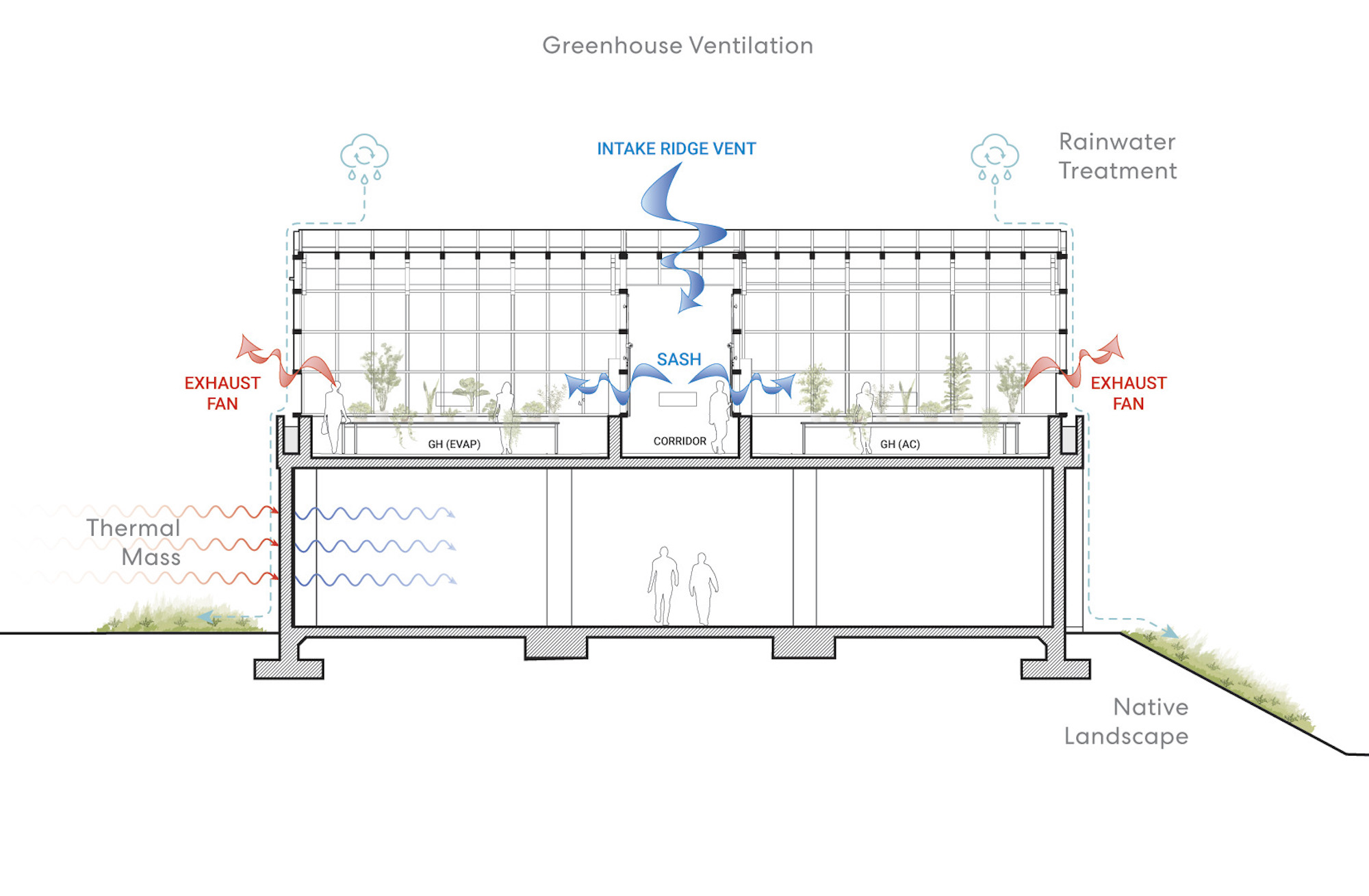
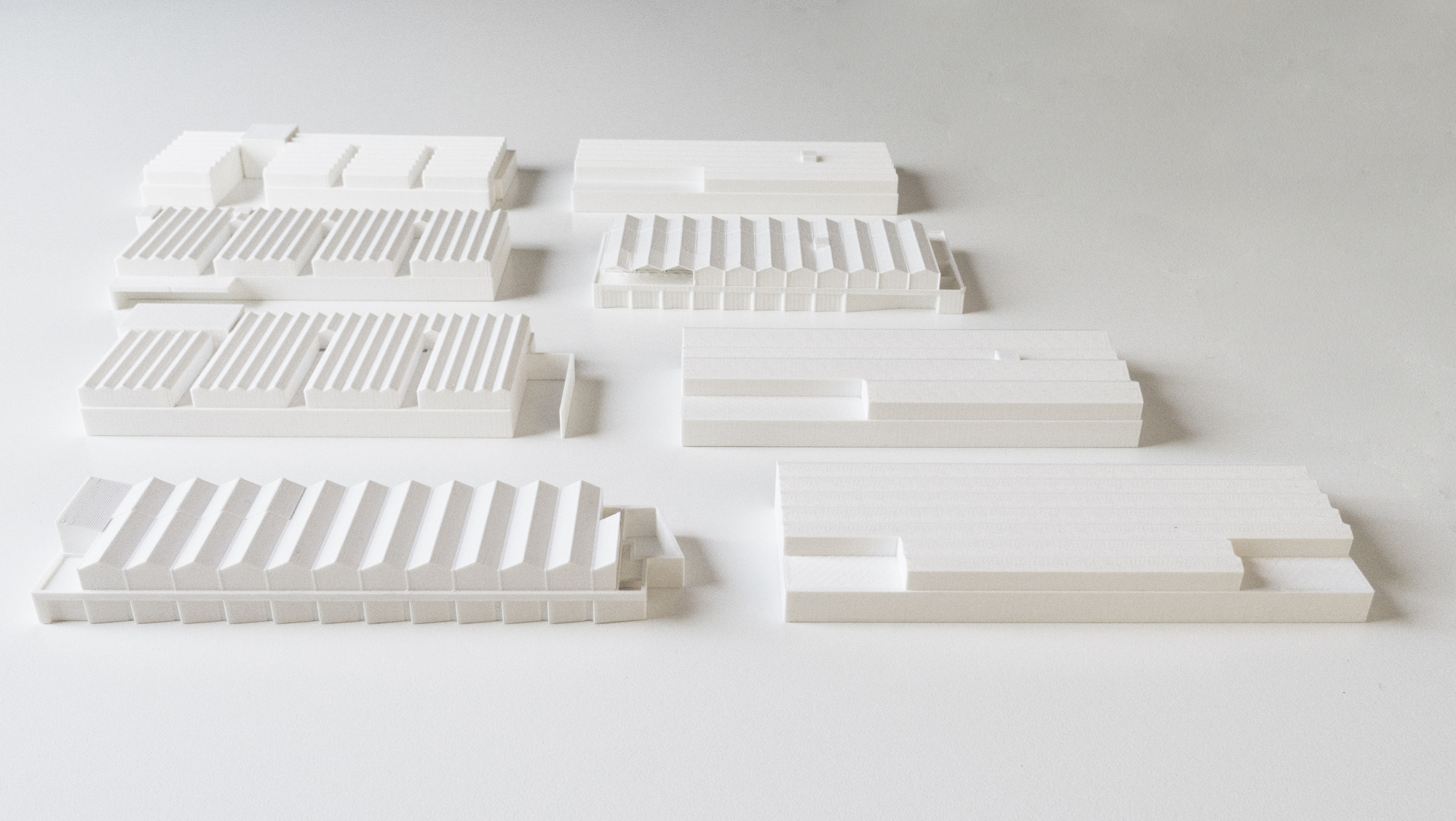

Related Stories
Office Buildings | Jun 10, 2016
Form4 designs curved roofs for project at Stanford Research Park
Fabricated of painted recycled aluminum, the wavy roofs at the Innovation Curve campus will symbolize the R&D process and make four buildings more sustainable.
University Buildings | Jun 9, 2016
Designing for interdisciplinary communication in university buildings
Bringing people together remains the main objective when designing academic projects. SRG Design Principal Kent Duffy encourages interaction and discovery with a variety of approaches.
Building Team Awards | May 31, 2016
Gonzaga's new student center is a bustling social hub
Retail mall features, comfortable furniture, and floor-to-ceiling glass add vibrancy to the new John J. Hemmingson Center.
University Buildings | May 26, 2016
U. of Chicago approves Diller Scofidio + Renfro design for new campus building
With a two-story base and 165-foot tower, the Rubenstein Forum will have room for informal meetings, lectures, and other university events.
University Buildings | Apr 27, 2016
SmithGroupJJR’s Electrical and Computer Engineering Building named 2016 Lab of the Year
Sustainable features like chilled beams and solar screens help the University of Illinois research facility use 50% less energy than minimum building energy efficiency standards.
University Buildings | Apr 25, 2016
New University of Calgary research center features reconfigurable 'spine'
The heart of the Taylor Institute can be anything from a teaching lab to a 400-seat theater.
University Buildings | Apr 13, 2016
Technology defines growth at Ringling College of Arts & Design
Named America's “most wired campus" in 2014, Ringling is adding a library, visual arts center, soundstage, and art museum.
University Buildings | Apr 13, 2016
5 ways universities use new buildings to stay competitive
From incubators to innovation centers, schools desire ‘iconic gateways’ that appeal to students, faculty, entrepreneurs, and the community.
University Buildings | Apr 4, 2016
3 key trends in student housing for Boston’s higher education community
The city wants to add 18,500 student residence beds by the year 2030. CannonDesign's Lynne Deninger identifies three strategies that will help schools maximize value over the next decade or so.
University Buildings | Mar 15, 2016
Behnisch Architekten designs Harvard’s proposed Science and Engineering Complex
The 497,000-sf building will be the home of the John A. Paulson School of Engineering and Applied Sciences.


